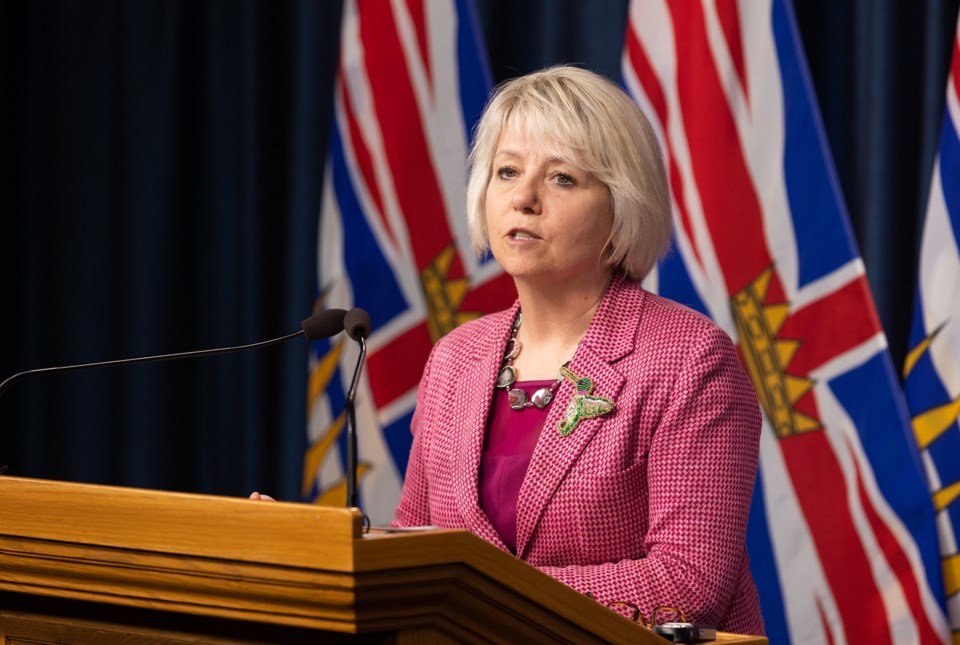COVID-19 hospitalizations in B.C. today fell in the ninth consecutive data update from government, to 653 – the lowest count since Jan. 14.
Of those, 108 people are in intensive care units (ICUs), which is the same number as yesterday, and a count that has not been lower since Jan. 17.
Health officials had predicted that the province's number of COVID-19 hospitalizations had peaked weeks ago, and that was part of the reason that they last week loosened restrictions to allow things such as restaurants to operate at full capacity, and for nightclubs to reopen, and have dancing.
Hospitalizations reached a peak of 1,048 on Jan. 31, with ICU counts reaching its peak on Feb. 8.
Hospitalization and ICU patient counts were far below current totals before mid-January because that is when the province changed the way it counts those patients, and started to include more people. Counts now include those deemed no longer infectious, as well as those who caught the disease in hospital while there for another reason and those in hospital who are from outside the province.
The province's system for reporting new deaths sometimes has glitches, and multiple days' counts from regions bunch up. Yesterday, the province revealed that there were 44 new known deaths in the previous four days. Today, there was only one new death announced, raising the province's pandemic death toll to 2.831.
The government did not reveal any demographic details about the person who died from COVID-19 overnight, but Provincial Health Officer Dr. Bonnie Henry said at an afternoon press conference that most of the recent COVID-19 deaths have been people who have underlying conditions and are older.
She added that younger people are dying too.
"In the last few days, we've had four people in their 40s who have died from COVID-19 [in B.C.,]" she said. "That's important. It reminds us that everybody has risk. Right now, we still have high levels of transmission, and if you don't have the protection that vaccine gives you, there is a possibility of having more severe illness and ending up in hospital."
One innovation that Health Minister Adrian Dix revealed this afternoon is that the province will start distributing free rapid tests through pharmacies starting as early as Feb. 25. People aged 70 and older will be the first ones eligible to get some of these tests.
More than 865,000 rapid tests have been provided to a pharmacy distributor that will provide the tests to pharmacies that order them.
People will need to provide their BC Services Card.
Dix said that those who test positive should:
• report the positive test to the BC Centre for Disease Control;
• self-isolate;
• manage symptoms; and
• call close contacts.
Health officials have been telling vaccinated people with mild symptoms to self-isolate and not get tested in order to reserve testing capacity for those who have more serious cases or who are clinically vulnerable. As a result, Henry called case count data "not accurate," and the province has stopped reporting data for how many people in B.C. they believe are actively infected, and how many are thought to have recovered.
It still reports the number of presumed new cases, and in the past 24 hours officials have confirmed 799 new cases from 6,647 tests for a 12 per cent positive-test rate.
There are thought to have been at least 346,196 British Columbians who have contracted COVID-19 since the first case was detected in late January 2020.
There are 29 active outbreaks at health-care facilities and seniors' homes. That is down by two from yesterday thanks to outbreaks declared over at Nanaimo Regional General Hospital and Chemainus Health Care Centre. No new outbreaks were discovered.
Between Feb. 15 and Feb. 21, people not fully vaccinated with two doses accounted for 20.4 per cent of cases, according to government data. Between Feb. 8 and Feb. 21, those individuals accounted for 32.8 per cent of hospitalizations.
Provincial data show 4,513,284 eligible B.C. residents older than five years have had at least one dose of vaccine, while 4,284,366 are considered fully vaccinated with two doses.
Henry noted that the number of those getting booster, or third shots of vaccine has been "ramping down," as there were 6,546 such shots given in the past day, for a total of 2,549,270.
Statistics Canada data released this month said that in the 2021 census, B.C.'s population had increased 7.6 per cent between 2016 and 2021, and that the new total number of residents is 5,000,879.
Glacier Media's calculation therefore is that slightly more than 90.2 per cent of B.C.'s total population has had at least one dose of vaccine, and more than 85.6 per cent of the province's total population has had two doses. Almost 51 per cent have had their booster doses. •



